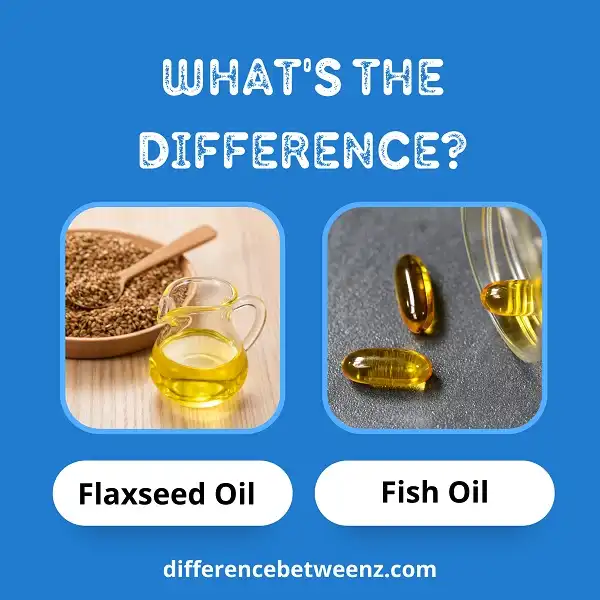Both fish oil and flaxseed oil are beneficial forms of Omega-3 fatty acids, but there are some key differences between the two. Fish oil is derived from harvesting fish, while flaxseed oil is made from the seeds of the flax plant. Flaxseed oil contains high levels of alpha-linolenic acid (ALA), while fish oil contains both EPA and DHA. ALA can be converted into EPA and DHA in the body, but this process is not very efficient, so fish oil may be a better choice for those seeking optimal benefits from omega-3 fatty acids.
What is Flaxseed Oil?
Flaxseed oil is a vegetable oil that comes from the seeds of the flax plant. The oil is rich in Omega-3 fatty acids, which are beneficial for heart health. Flaxseed oil can be used in cooking or taken as a supplement. Some people also apply it to their skin or hair. Flaxseed oil has a nutty flavor and a slightly oily texture. It should be stored in a cool, dark place and used within a few months of opening. When used as a dietary supplement, flaxseed oil is typically taken in capsules or soft gels. The recommended dosage depends on the person’s age, health, and other factors. Speak to a healthcare provider before taking flaxseed oil to make sure it is right for you.
What is Fish Oil?
Fish oil is a type of oil that is extracted from the body of fish. It is rich in omega-3 fatty acids, which are beneficial for human health. Fish oil has been shown to improve heart health, reduce inflammation, and boost cognitive function. It can also be helpful for conditions such as diabetes, arthritis, and Crohn’s disease. Fish oil is available in supplement form and can also be found in certain types of fish, such as salmon and tuna.
Difference between Flaxseed Oil and Fish Oil
Flaxseed oil and fish oil are two types of oils that offer different benefits. Flaxseed oil is a plant-based oil that contains omega-3 fatty acids, which are beneficial for heart health and reducing inflammation. Fish oil, on the other hand, is derived from fish and also contains omega-3 fatty acids. In addition to these benefits, fish oil also provides vitamin D and omega-6 fatty acids. While both oils offer some similar benefits, they also have some key differences.
Flaxseed oil is high in ALA (alpha-linolenic acid), while fish oil is high in EPA (eicosapentaenoic acid) and DHA (docosahexaenoic acid). ALA must be converted into EPA and DHA in order to be used by the body, but this conversion is not very efficient. As a result, fish oil is a better source of EPA and DHA than flaxseed oil. In addition, fish oil is more effective than flaxseed oil in reducing inflammation. If you are looking for an oil to improve heart health or reduce inflammation, fish oil is a better choice than flaxseed oil.
Conclusion
The debate between flaxseed oil and fish oil is one that has been around for many years. Both sides have their benefits, but it ultimately comes down to what you are looking for in an oil supplement. If you are looking for a better source of omega-3 fatty acids, then fish oil is the way to go. However, if you want to increase your intake of lignans, then flaxseed oil would be the best choice. Whichever route you decide to take, make sure that you consult with a healthcare professional to figure out which option would be best for your individual needs.


